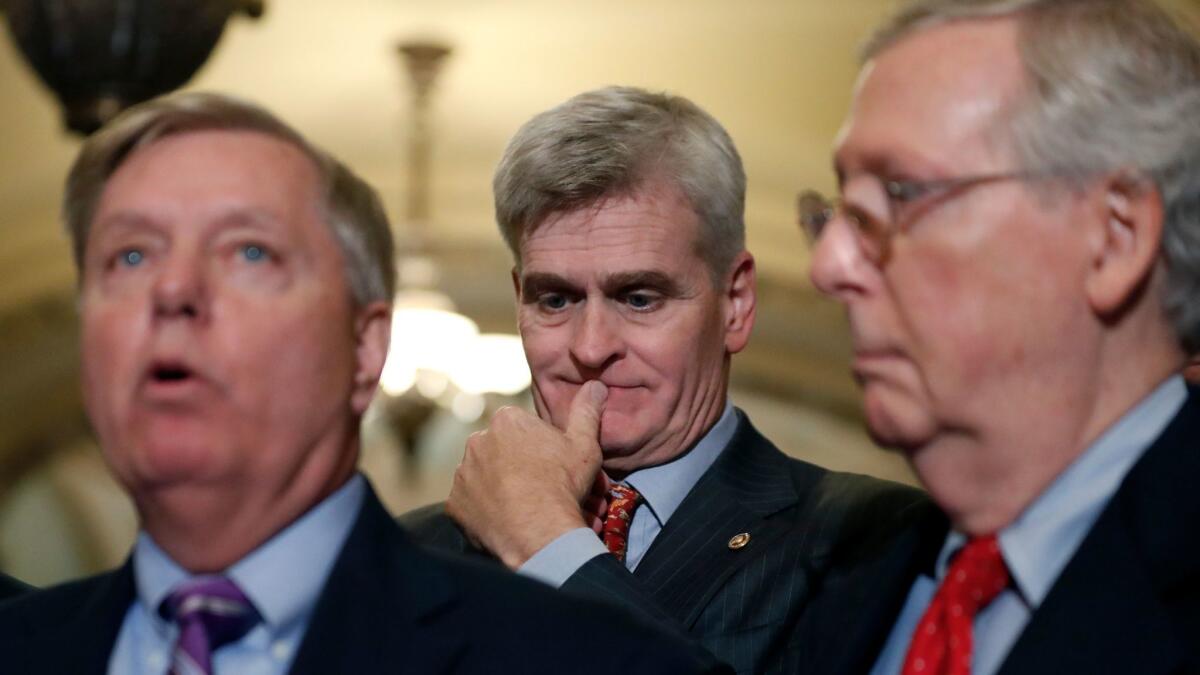Op-Ed: Americans have been fighting over government’s role in medical care for decades. That fight will continue

In 1978, I was on overnight duty in the pediatric emergency room at Los Angeles County Hospital. It had been a busy night and I was looking forward to the end of shift. At about 4 a.m., a man with a frantic expression came rushing into the ER carrying what looked like a small log wrapped in a blanket. His 4-year-old son had suffered an asthma attack and the man had bypassed several private-hospital ERs on the way to the public hospital. He’d previously been refused emergency care at the private hospitals due to lack of insurance. On this occasion, the father did not want to waste time and took the much longer drive to Big County. I took the bundle from his arms and rushed into the treatment room.
As soon as I unwrapped the child, I could tell that he had died en route. I tried to resuscitate him, but to no avail. I informed the father that his son had died, and he responded as one might expect. Sometime later, as I was standing outside the ER watching the sun come up and trying to make sense of what had happened, the father stepped outside too. I stammered an apology for not being able to save his son. He said, “It’s OK, doc. It’s not your fault his father is a poor man.”
In the decades since I worked at Big County, government action has made it possible for today’s children and their parents to avoid the same fate of that little boy and his father. In 1986, the federal government passed the Emergency Medical Treatment and Active Labor Act, which prohibits private emergency rooms from refusing to provide care because of inability to pay. More recently, the Affordable Care Act extended insurance coverage to tens of millions of Americans.
Republicans have, of course, been trying to overturn the ACA, most recently with the Graham-Cassidy bill. Although that particular fight is over (enough Republicans came out against the bill to doom its prospects), it’s only the latest in a long war over the role of government in healthcare — and one that’s sure to continue.
Many on the right have never accepted the idea that government should use its power to improve citizens’ physical well-being.
Washington first acknowledged its responsibility in the domain of public health in 1798, when President John Adams signed “An Act for the relief of sick and disabled seamen.” It deducted 20 cents per month from seamen’s wages to fund their medical care and build hospitals dedicated to their welfare. (Sounds like the individual mandate, no?)
Despite this long tradition, many on the right have never accepted the idea that government should use its power to improve citizens’ physical well-being.
In 1929, “big-government” opponents in Congress defeated the Sheppard-Towner Act, which would have provided annual grants to local public health departments for maternal and child health programs.
In 1965, conservatives again banded together to fight the passage of Medicare. Despite a ferocious lobbying campaign and a right-wing grass-roots effort that foreshadowed the tea party movement, progressives won out. And thank God they did. Prior to Medicare, one out of three seniors lived in poverty and countless families abandoned their aging parents at the doors of the nation’s emergency rooms because they were unable to pay for their care. Such scenes disappeared with the passage of Medicare.
Many on the right, however, have never come around to Medicare or Medicaid, the health insurance program for the poor, much less the ACA. Republican opposition to government-regulated medical care is partially based on the view that government governs best which governs least. Conservatives associate liberty with markets.
They may not realize it but they have more than a little in common, ideologically, with the early 17th century British statesmen who crafted the Elizabethan Poor Laws. These laws gave local governments the power to raise taxes to maintain almhouses and provide relief for the “worthy” poor, including the elderly. But they also mandated that the “able-bodied poor” be set to work in a House of Industry and sent the “idle poor” to Houses of Correction. In their twisted logic, poor people were only desperate because they were lazy or morally inferior to the wealthy.
GOP legislators echo these obsolete ideas when they talk about indigent “able-bodied adults” needing to work to deserve health insurance. The Graham-Cassidy bill would devolve all Medicaid funding to the states and give them the option to place a “work requirement” before “able-bodied” adults can “deserve” health insurance. No other civilized nation makes such a demand on its people.
From my decades of experience as a doctor, it seems to me that no market-driven healthcare system can simultaneously limit costs, guarantee universal coverage and deliver desired outcomes. Overwhelming evidence demonstrates that the best way to reduce costs and guarantee healthcare to everyone is to have the largest risk pool — that is, the entire nation. These facts compel the United States to move to a single-payer system guided by comparisons with other countries’ experiences and by our own American successes, such as Medicare and Medicaid.
The preamble of our Constitution states that government exists to provide “domestic tranquility” and “promote the general welfare,” which certainly suggests constitutional support for healthcare for all, including poor children with asthma. Regardless of the outcome of the current effort against the role of government in medical care, the fight goes on.
Steve Tarzynski is a physician and president of the California Physicians Alliance.
Follow the Opinion section on Twitter @latimesopinion or Facebook
More to Read
A cure for the common opinion
Get thought-provoking perspectives with our weekly newsletter.
You may occasionally receive promotional content from the Los Angeles Times.






